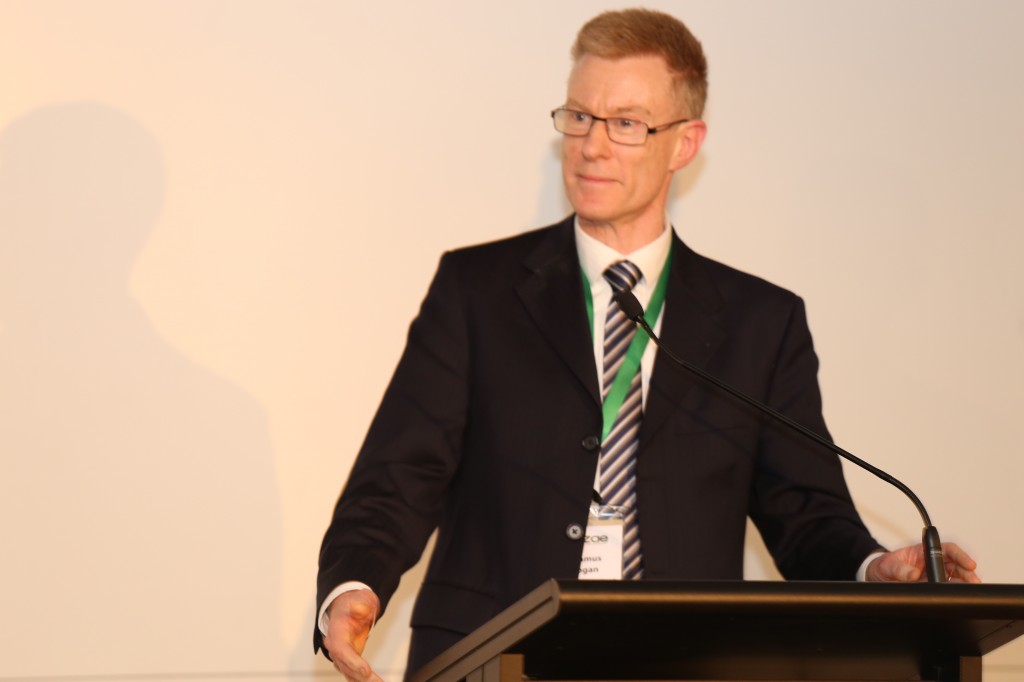Please see attached for printable summary of prizes available at the 2016 NZAE Conference.
NZAE Prizes 2016
Author Archives: admin
Transport Economics Knowledge Hub Upcoming Seminar in March
Transport Economics Knowledge Hub invite you to:
-
Economic development and transport by Ian Duncan (Principal Economist at Ministry of Transport)
-
Analytical framework and real options by David Greig (Strategy Director at Ministry of Transport) and Joanne Leung (Principal Economist at Ministry of Transport)
Time and date: 12 pm to 1 pm, Monday, 14 March 2016
Venue: Ministry of Transport, Level 6, SAS Tower, 89 The Terrace, Wellington
Welcome
Welcome to blog of Transport Economics Knowledge Hub – more to come
2016 NZEP Issue 1 special issue on Economics of Savings
The contents of New Zealand Economic Papers, Volume 50, Issue 1, 2016 (available online or by subscription):
- Introduction to the special issue by Arthur Grimes & Gail Pacheco
- Intergenerational developments in household saving behaviour by Mark Vink
- Retirement income policy and national savings by David Law
- Pension payments and receipts by New Zealand birth cohorts, 1916–1986 by Andrew Coleman
- KiwiSaver risk indicators by Henk Berkman, Randall Clement & Annie Zhang
- Hot property in New Zealand: Empirical evidence of housing bubbles in the metropolitan centres by Ryan Greenaway-McGrevy & Peter C.B. Phillips
Seminars for 2016 including Treasury, RBNZ and universities
A list of seminars at each institution can be found on the pages below.
- AUT University Business
- Unitec New Zealand
- University of Auckland Economics
- Massey University, Albany
- University of Canterbury Economics & Finance (including videos)
- University of Otago Economics (including podcasts)
- Massey University, Manawatu, Economics & Finance
- Institute of Policy Studies (IPS)
- Institute of Public Administration New Zealand (IPANZ)
- Law & Economic Association of New Zealand (LEANZ)
- Motu
- RBNZ seminars and workshops
- Treasury Guest Lectures
- University of Victoria Economics & Finance
- University of Waikato Management School
Students invited to enter for Seamus Hogan Research Prize
The Seamus Hogan Research Prize is a newly-established award to honour the memory of Seamus Hogan (1962-2015). Seamus was President of the New Zealand Association of Economists when he died, after having served several terms on the Association’s Council. Seamus had recently joined the staff of Victoria University of Wellington, and had taught for many years at the University of Canterbury in his native Christchurch. He was highly regarded by his colleagues and students for his teaching, research, and support for the profession and the goals of the Association. It is because of the time and care he took with his many students that the focus of this prize is student research. His obituary can be found in Asymmetric Information, issue 53, August 2015.
The Seamus Hogan Research Prize is awarded for the best public policy paper written by a student and presented at the annual conference. It is for the amount of $1,000.
CONDITIONS OF ENTRY
The prize is for the best paper on a public policy topic written by a student, and it is awarded at the conference. The award is for the written paper, which will be judged according to its clarity of presentation and communication, its critical application of economics to a topic in public policy, and the appropriate selection of empirical and theoretical tools for addressing the policy question at hand.
Entry to the Seamus Hogan Research Prize is open to persons who at the time of the conference are either enrolled in tertiary study in New Zealand or have completed a tertiary degree in New Zealand in the preceding 12 months. There is no residence requirement.
Entrants must be able to attend and present their paper at the NZAE Conference. The presentation may be either an Oral Presentation or Poster Presentation.
Entrants must comply with Conference Registration deadlines as detailed on the conference website.
Co-authored papers are allowed, and the other authors need not meet the eligibility criteria for the award. However, the entrant should have made a substantial contribution to the research.
Authors must comply with all deadlines for submission of Abstracts and Full Papers as detailed on the conference website. Full Papers for the Seamus Hogan Prize may be due before the Conference, to allow sufficient time for judging.
When registering for the conference, please be sure to indicate that you wish to enter the Seamus Hogan Prize.
2015 NZEP Issue 3 includes impact of ageing in NZ
The contents of New Zealand Economic Papers, Volume 49, Issue 3, 2015 (available online or by subscription):
- The distributional impact of population ageing in New Zealand by Omar A. Aziz, Christopher Ball, John Creedy & Jesse Eedrah
- The elasticity of taxable income, welfare changes and optimal tax rates by John Creedy
- Productivity spillovers from foreign direct investment in New Zealand by Tinh Doan, David Maré & Kris Iyer
- Public–private partnerships for transport infrastructure: Some efficiency risks by Matthew Ryan & Flávio Menezes
- Safety in the New Zealand sex industry by Laura Meriluoto, Rachel Webb, Annick Masselot, Sussie Morrish & Gillian Abel
- Citation for Arthur Robson to mark his Distinguished Fellow Award by the New Zealand Association of Economists
December 2015 AI (#54) includes interviews with Creedy and Proctor
Asymmetric Infomation Issue 54
Contents:
- Editorial
- An Interview with John Creedy (by Norman Gemmell)
- The ‘Five Minute Interview’ (Roger Proctor)
- NZIER Economics Award 2015
- Blogwatch (by Paul Walker)
- (Motu) Performance Evaluation of Research Programmes: The Marsden Fund (by Adam Jaffe)
- (Motu) Cyclical changes in Workforce Skill and Firm Productivity Measures (by David Maré, Dean Hyslop and Richard Fabling)
- (Stats New Zealand) Development of New Balance Sheets and Financial Flow Accounts (by Lindsay Beck)
- NEW MEMBERS (Calendar year 2015 to date)
- Report from GEN
- Research in Progress (University of Waikato)
Tell us why you might or might not join NZAE
NZAE would like to learn more about why people choose (or not) to be members of NZAE, and what benefits of membership you’d like to see. Here’s a link to a short survey that will help us find out: SurveyMonkey. We’re keen to hear from both members and non-members, so feel free to pass this link on to others as well as filling it in yourself.
18th Central Bank Macroeconomic Modelling Workshop 7-8 Dec 2015
The Reserve Bank of New Zealand will host the 18th Central Bank Macroeconomic Modelling Workshop. The annual series of workshops aims to give policymakers and academics the opportunity to discuss issues related to the class of models used for policy analysis.
This year’s workshop on “Challenges for Open Economies” focuses on the growing real and financial linkages among economies, and their implications for policy analysis. Topics of particular interest include, but are not limited to: exchange rate determination and impacts, the terms of trade and commodity prices, international factor mobility, policy spillovers and the international dimension of inflation dynamics.
The workshop will be held at the InterContinental Hotel in Wellington, New Zealand on 7-8 December 2015.
Keynote Speakers:
Frank Smets, European Central Bank
Giancarlo Corsetti, Cambridge University
5th Auckland Finance Meeting on 17-19 Dec 2015
The Auckland Centre for Financial Research at the Faculty of Business and Law, Auckland University of Technology is hosting its 5th Auckland Finance Meeting on 17-19 December 2015. The main focus will be on empirical/econometric studies in finance. Topics include (but are not limited to): Asset Pricing; Behavioral Finance; Empirical Corporate Finance; Derivative Markets; Financial Econometrics; Financial Markets; International Finance; Market Microstructure; Risk Management; Volatility Models; Banking; etc. The academic part of the meeting will commence in the afternoon of 17 December and finishes in the afternoon of 19 December.
GEN Annual Conference 30 Nov 2015
GEN Annual Conference 2015
“THE NEXT 5 YEARS; POLICY ISSUES AND PRACTICES”
The 2015 GEN Annual Conference will be held on 30 November at the Intercontinental Hotel, Wellington.
The next five years will see important changes in New Zealand. We will continue to get older, we can expect more disruptive technological innovations, global markets will evolve, and major debates around inequality, regulation and the investment approach will likely continue. At this day-long conference, international and domestic experts will outline what some of the most important changes over the next five years could be and how these could affect the knowledge and skills requirements of economists in government in New Zealand.
This will include sessions on:
- The current state of economic thinking and what this may mean for income transfer policies and regulation
- New Zealand’s changing demographic profile
- The changing business outlook
- Policymaking under uncertainty
- The investment approach to social policy
The line-up of speakers includes:
- Hon Bill English; MP, Deputy Prime Minister, Minister of Finance
- Prof Warwick McKibbon; Director of the Centre for Applied Macroeconomic Analysis Australian National University
- Sir David Ramsden; Director General UK HM Treasury Chair of UK Government Economic Service
- Prof Robert Wade; Professor of Political Economy, London School of Economics
NZAE Conference 2016 timeline and keynote speakers
The 2016 Conference will follow the highly regarded 2014 conference held in the Sir Paul Reeves Building at AUT, Mayoral Drive, Auckland. Keynotes speakers include David Teece, James K. Galbraith, John Gibson and Janet Currie.
Key Dates:
Wednesday 24th February. First notice of conference sent out
Wednesday 24th February. Portal for abstract submissions opens
Wednesday 23th March. Final notice of conference sent out
Monday 28th March. Conference registration opens
Friday 1st April. Abstracts Due
By Monday 25th April. Notification of acceptances
Monday 16th May. Registration deadline for presenters
Monday 16th May. Deadline for early‐bird registration
Monday 13th June. Full papers due for entries to prizes
Wednesday 29th June. Conference start
Friday 1st July. Conference end
NZAE Speakers 2016
James K. Galbraith holds the Lloyd M. Bentsen Jr. Chair of Government/Business Relations at the Lyndon B. Johnson School of Public Affairs, the University of Texas at Austin. His most recent book, The End of Normal, was published in September, 2014 by Free Press. Other books include Inequality and Instability, and What Everyone Needs to Know About Inequality.
He holds degrees from Harvard (A.B., 1974) and Yale (Ph.D. in Economics, 1981) and won a Marshall Scholarship to King’s College, Cambridge. He has served on the congressional staff, including as Executive Director of the Joint Economic Committee, is chair of Economists for Peace and Security and Senior Scholar at the Levy Economics Institute.
In 2010 he was elected to the Accademia Nazionale dei Lincei. In 2012, he was President of the Association for Evolutionary Economics. He is the 2014 co-winner of the Leontief Prize for advancing the frontiers of economic thought.
https://utip.gov.utexas.edu/JG/
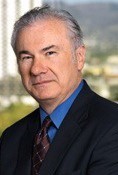 Professor David J. Teece is an authority on subjects including the theory of the firm and strategic management, the economics of technological change, knowledge management, technology transfer, and antitrust economics and innovation. He has a Ph.D. in economics from the University of Pennsylvania, has held teaching and research positions at Stanford University and Oxford University, and has also received three honorary doctorates. Dr. Teece has testified before Congress on regulatory policy and competition policy, is author of over 200 books and articles, and is the editor of “Industrial & Corporate Change” (Oxford University Press). According to Science Watch, he is the lead author on the most cited article in economics and business worldwide, 1995–2005. He is also one of the top 10 cited scholars in economics and business for the decade, and has been recognized by Accenture as one of the world’s top 50 business intellectuals.
Professor David J. Teece is an authority on subjects including the theory of the firm and strategic management, the economics of technological change, knowledge management, technology transfer, and antitrust economics and innovation. He has a Ph.D. in economics from the University of Pennsylvania, has held teaching and research positions at Stanford University and Oxford University, and has also received three honorary doctorates. Dr. Teece has testified before Congress on regulatory policy and competition policy, is author of over 200 books and articles, and is the editor of “Industrial & Corporate Change” (Oxford University Press). According to Science Watch, he is the lead author on the most cited article in economics and business worldwide, 1995–2005. He is also one of the top 10 cited scholars in economics and business for the decade, and has been recognized by Accenture as one of the world’s top 50 business intellectuals.
https://businessinnovation.berkeley.edu/intellectual-capital/research/
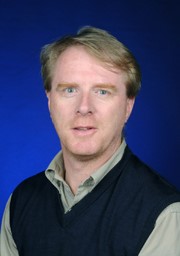 John Gibson is Professor of Economics at the Waikato Management School. A graduate of Lincoln University, John has a doctorate from Stanford University in the United States. His teaching and research interests are in microeconomics and in the micro econometric aspects of development, labour and the international economy. John is currently a Senior Research Associate at the Motu Economic and Public Policy Research Trust. His other research interests include poverty measurement, where he is a member of an expert group advising the United Nations Statistical Division, the design and analysis of household survey data, and economic development, especially in China and other Asian and Pacific economies.
John Gibson is Professor of Economics at the Waikato Management School. A graduate of Lincoln University, John has a doctorate from Stanford University in the United States. His teaching and research interests are in microeconomics and in the micro econometric aspects of development, labour and the international economy. John is currently a Senior Research Associate at the Motu Economic and Public Policy Research Trust. His other research interests include poverty measurement, where he is a member of an expert group advising the United Nations Statistical Division, the design and analysis of household survey data, and economic development, especially in China and other Asian and Pacific economies.
https://www.mngt.waikato.ac.nz/staff%20List/staffhome.asp?user=JKGIBSON
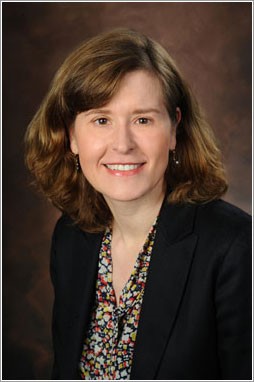 Janet Currie is the Henry Putnam Professor of Economics and Public Affairs at Princeton University and the Director of Princeton’s Center for Health and Well Being. She is a member of the Institute of Medicine, a fellow of the American Academy of Arts and Sciences, the American Academy of Political and Social Sciences, and the Econometric Society, as well as past Vice President of the American Economic Association and in-coming President of the Society of Labor Economists. She is on the Board of Reviewing Editors of Science magazine and on the editorial board of the Quarterly Journal of Economics.
Janet Currie is the Henry Putnam Professor of Economics and Public Affairs at Princeton University and the Director of Princeton’s Center for Health and Well Being. She is a member of the Institute of Medicine, a fellow of the American Academy of Arts and Sciences, the American Academy of Political and Social Sciences, and the Econometric Society, as well as past Vice President of the American Economic Association and in-coming President of the Society of Labor Economists. She is on the Board of Reviewing Editors of Science magazine and on the editorial board of the Quarterly Journal of Economics.
Her research focuses on the health and well-being of children including early intervention programs, expansions of public health insurance, public housing, and food and nutrition programs. Her current research focuses on socioeconomic differences in child health, environmental threats to children’s health, and the long term effects of poor health in early childhood.
August 2015 AI (#53) remembers Peter, Allan and Seamus
Asymmetric Information Issue 53 August 2015
Contents:
- Editorial
- Obituary: Peter Conway
-
Obituary: Allan Catt
-
Obituary: Seamus Hogan
-
An Interview with John Yeabsley (by David Galt)
-
From the 2B RED File (by Grant Scobie)
-
‘Frames’ (by Stuart Birks)
-
The ‘Five Minute Interview’ (Rhema Vaithianathan)
-
Blogwatch (by Paul Walker)
-
Fine Lines (by John Creedy)
-
(Motu) The impact of R&D subsidies on innovation by
New Zealand firms (by Adam Jaffe and Trinh Le)
-
(Stats New Zealand) Improving our understanding of
labour demand (by Daniel Griffiths)
-
Report from GEN
-
Research in Progress
(Victoria University of Wellington)
-
The Citation for the A. R. Bergstrom Prize in
Econometrics
2015 NZEP Issue 2 includes effects of Canterbury earthquakes
The contents of New Zealand Economic Papers, Volume 49, Issue 2, 2015 (available online or by subscription):
- Asian stock markets, US economic policy uncertainty and US macro-shocks by Michael Donadelli
- The short-run nationwide macroeconomic effects of the Canterbury earthquakes by Lisa Doyle & Ilan Noy
- The effects of unemployment rate fluctuations on private health insurance coverage in New Zealand by David Chamberlain & Andrea Kutinova Menclova
- Monetary policy and interest rates under inflation targeting in Australia and New Zealand by Hakan Berument & Richard T. Froyen
- Revenue-maximising tax rates and elasticities of taxable income in New Zealand by John Creedy & Norman Gemmell
Dr Seamus Hogan passes away suddenly
It is with great sadness that the NZAE reports the sudden passing of its President, Dr Seamus Hogan. The Association sends its condolences to his family and friends.
His obituary may be found here.
2015 Conference papers available online
Papers made available by presenters at the NZAE Conference held in Wellington 1-3 July 2015 can be found at this page
11th A R Bergstrom Prize in Econometrics to Michelle Lewis
Congratulations to Michelle Lewis, who was awarded the 2015 A. R. Bergstrom Prize in Econometrics for her paper “Forecasting with Macro-Finance Models: Applications to United States and New Zealand”. The Bergstrom Prize can be awarded every two years (although a three year gap ensued this time) and aims to reward the achievement of excellence in econometrics, as evidenced by a research paper in any area of econometrics.
Michelle Lewis’s Masters Thesis employs macro-finance models, which incorporate macroeconomic and timely financial market data, to forecast macroeconomic variables and the yield curve for New Zealand and the United States. The macro-finance models use the arbitrage-free Nelson-Siegel approach to represent yield curve data with just several components, and those components are combined with the macroeconomic variables of economic activity, inflation, and policy interest rates in a joint vector autoregression to produce forecasts.
The key contribution to the literature is that Michelle’s forecasting analysis is undertaken in a genuine real-time setting. That is, the model estimation and forecasts use the actual macroeconomic data that was available at each historical point in time, which realistically allows for an unavoidable uncertainty faced by practitioners. Conversely, the comparable literature to-date uses quasi-real-time macroeconomic data, which simply truncates the final available macroeconomic data series to estimate the model and produce forecasts over history. While showing promising forecasting benefits from macro-finance models, quasi-real-time analysis is unrealistic because it implicitly assumes that future revisions to historical macroeconomic data are already known at each historical point in time.
Fortunately, Michelle’s results show that, even in real time, there are still substantial forecasting benefits from using macro-finance models. The forecast improvements are most significant and robust for inflation and the policy rate, and economic activity for longer horizons. Furthermore, theoretically motivated restrictions on the yield curve dynamics improve the forecast performance of macroeconomic variables, and the yield curve itself.
However, for economic activity at short-term horizons, the forecasts from macro-finance models do not outperform forecasts from a standard vector autoregression of the macroeconomic variables. This result is at odds with the analogous quasi-real-time analysis, hence illustrating that quasi-real-time analysis can overstate the forecasting benefits of macro-finance models.
In their assessment, the adjudicators Professors Alfred Haug and Les Oxley noted: “The thesis is a substantial piece of empirical research that involved constructing new data and applying sophisticated econometric techniques that were skilfully mastered. Overall, it is an excellent piece of empirical econometrics. The author needs to be congratulated on her achievements.”
Arthur Robson awarded Distinguished Fellow of NZAE
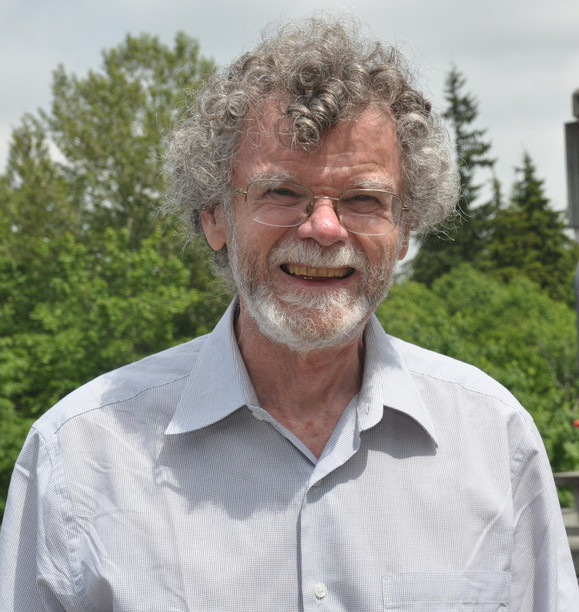 Arthur Robson holds the Canada Research Chair in Economic Theory and Evolution at the University of Simon Fraser. He has made an extraordinary contribution to economic theory, particularly microeconomic theory in the context of change brought about by competitive evolutionary pressures. His scholarship has been prodigious and has shaped the direction of enquiry by economists and, to some degree, certain biological science.
Arthur Robson holds the Canada Research Chair in Economic Theory and Evolution at the University of Simon Fraser. He has made an extraordinary contribution to economic theory, particularly microeconomic theory in the context of change brought about by competitive evolutionary pressures. His scholarship has been prodigious and has shaped the direction of enquiry by economists and, to some degree, certain biological science.
Professor Arthur Robson gained a BSc(Hons) First Class in Pure and Applied Mathematics from Victoria University of Wellington in 1968; when he won the Robert Stout award for the best degree. In 1969 he entered the Pure Mathematics PhD programme at MIT, but after two years of course work switched to a PhD in economics that he completed at MIT in 1974. His thesis was on the contemporary topic “Congestion, Pollution and Urban Structure”. His research publications – of which there are more than 60 in the upper echelon of economics journals – reveal an early interest in inter-temporal strategies and consequent effects incorporating uncertainty. By the 1990s Arthur’s publications show his strong interest in evolutionary processes and from that time a large number of publications that apply the logic of mathematical economics to the evolution of economic systems and their primitives – such as preferences. They include the effect of selection among agents that face different sorts of uncertainty. As an aside, some recall the paper – “Status, the Distribution of Wealth, Private and Social Attitudes to Risk,” Econometrica 60 (1992), 837-857, presented at Victoria – that held the result that purchase of lottery tickets can be rational if the prize is big enough.
Arthur has brought a unique insight to evolutionary game theory. We discuss two of his contributions here, selected based on being both important and easy to explain. Perhaps it is because so many of us are economists, but we game theorists do seem to have an underlying belief that a decentralized optimizing process like evolution should lead to efficient outcomes much of the time. Be that as it may, most evolutionary models do not lead to efficiency. Arthur is responsible for two of the most important papers showing how evolution can lead to efficiency. One of these is “Efficiency in Evolutionary Games: Darwin, Nash and the Secret Hand-shake,” Journal of Theoretical Biology 144 (1990), 379-396. In this paper, Arthur allows for a mutation that does two things. It leads the recipient to show a visible ‘signal’ (the secret hand-shake) that this mutation has occurred. It also leads the recipient of the mutation to make a cooperative choice when interacting with another individual who also shows this signal. In this manner, the mutants are able to benefit from cooperation when facing each other, while still being able to make an optimal choice when faced with non-mutants. Mutants with ‘secret hand-shakes’ quickly take over a population when the interactions within that population are such that cooperative behavior does not leave an agent exposed to exploitation.
Arthur tackles the fundamental mystery of human intelligence in “The Evolution of Rationality and the Red Queen,” Journal of Economic Theory 111 (2003), 1-22. Our high intelligence is clearly useful in the complex societies in which we dwell. On the other hand, our high intelligence is necessary for the formation of our complex societies. It has been argued that our exceptionally high intelligence is unnecessary for dealing with the external environment that existed prior to the formation of our societies. Many who have made this argument suggest that our societies and intelligence evolved together. However, such arguments ignore the different time scales required for evolution and the development of a society. Arthur shows how competition between humans can lead to an arms race in which we need ever greater and greater intelligence in order to succeed against other humans. A nice feature of this approach is that as humans get smarter, the evolutionary pressure for intelligence increases. On the other hand, if intelligence occurred because of the external environment, then evolutionary pressure on intelligence would decrease the smarter humans became.
Arthur’s outstanding research achievements and scholarship are reflected in his post-PhD long-term and short-term appointments. He started his post-PhD academic career at the University of Western Ontario (UWO) in 1975, moving to Simon Fraser University in 2003. He overlapped with John McMillan – NZAE Distinguished Fellow 2005 – at UWO during a very academically lively period for that economics department. Arthur has had myriad short term academic engagements in prominent institutions in North America, Europe the UK, as well as the Middle East and Australia and New Zealand. He has received visiting Fellowships and is a Fellow of the Econometric Society among others. Arthur has been in international demand for his research per se, but also for his seminars and organisation of conference sessions and workshops on evolutionary economics.
Arthur has held continued interest in New Zealand and visited this country from time to time, including in his role of Adjunct Professor at Victoria University for 2005-2008. He has outstanding credentials for the award of Distinguished Fellow of the New Zealand Association of Economists.
Lewis Evans and Jack Robles
Call for papers Special issue on Advances in Competition Policy and Regulation
The Applied and Theoretical Economics (ATE) Research Network (https://ate.massey.ac.nz) is calling for papers for a Special Issue on Advances in Competition Policy and Regulation. Our goal is to shed light on pressing issues in this field that are of concern to academic economists, consultants/practitioners and government policy makers. Please note that a specific New Zealand context is not a criterion for paper acceptance. Areas of interest for this issue include (but are not limited to) the following topics:
- Energy Economics
- Innovation Theory and Policy
- Mergers and Partnerships
- Competition in Vertical Chains
- Network Economics
- Empirical Industrial Economics
Deadline for submission: 1 March 2016.
Ranking: Australian Business Deans Council (ABDC) Journal Quality List - B ranking.
Submission: please use the online portal at https://mc.manuscriptcentral.com/rnzp. Please indicate that your paper is meant for the Special Issue on the ‘Advances in Competition Policy and Regulation’ during the submission process. Selection of papers for the Special Issue will follow peer review.
Guest Editors:
Simona Fabrizi (email: s.fabrizi@massey.ac.nz)
Steffen Lippert (email: s.lippert@auckland.ac.nz)
John Panzar (email: j.panzar@auckland.ac.nz)
Availability: New Zealand Economic Papers is a fully peer-reviewed scholarly journal published by leading international publishers Taylor & Francis (under the Routledge imprint) on behalf of the New Zealand Association of Economists. The journal is indexed in leading international databases including EconLit, ABI/Inform and EBSCO.


